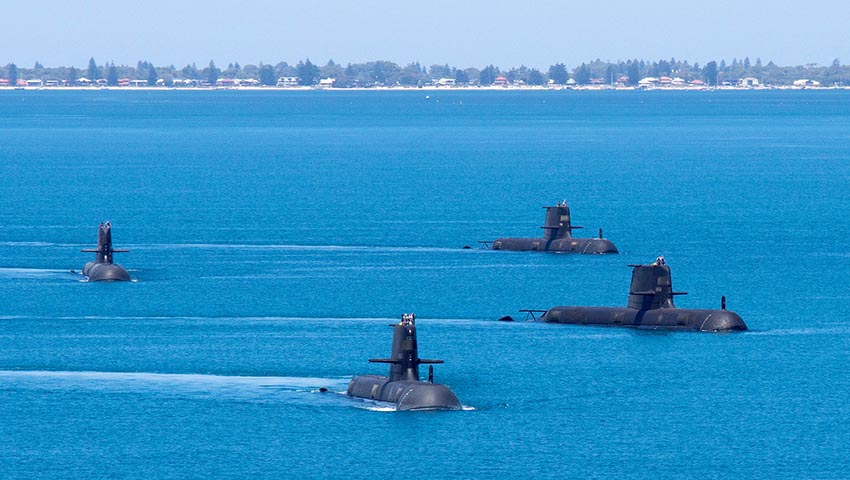Defence has committed $6 billion to refit all six Collins Class submarines amid ongoing concerns over the FOC timeline for the future Attack Class fleet.
Minister for Defence Peter Dutton has confirmed that approximately $6 billion would be invested in a life-of-type extension (LOTE) for all six of the Royal Australian Navy’s Collins Class submarines.
Defence had initially planned to upgrade just three of the platforms ahead of the delivery of the 12 Naval Group-built Attack Class submarines, promised under the SEA 1000 program.
However, given that the Future Submarines are not scheduled to achieve final operational capability (FOC) until 2054, a decision has been made to ensure at least six vessels are combat-ready throughout the delivery period.
“We need to be realistic about what lies ahead by way of threat in our own region and the submarine capacity is a significant part of how we mitigate that risk and it’s important we get the program right,” Minister Dutton told the media.
“There is no doubt in my mind that we need to pursue a life-of-type extension and we are working on that program now. All six would be on the schedule.”
The Collins LOTE program is expected to involve rebuilding each submarine once it achieves 30 years of service, with each upgrade scheduled to take approximately two years.
The submarines will reportedly be rebuilt by ASC in Adelaide, with the work to be supported by Saab Kockums, the original co-builder of the fleet.
Contracts for the full suite of work to be undertaken are yet to be finalised.
“Saab is a trusted partner and they will form some part of the picture in LOTE and the extent of that is something we are contemplating at the moment,” Minister Dutton added.
“It is a tight timeline, no question about that.
“That’s why we need to make sure that Defence gets the contracting right, that our partners know that their undertakings and their commitments in the contract must be honoured and it’s important for us to get not only the timeline right but the costings right as well.”
Minister Dutton went on to acknowledge the disruptions associated with the SEA 1000 project, adding that Defence would continue to liaise with Naval Group and industry stakeholders to address challenges.
“Clearly there have been problems with the arrangements with Naval Group,” he said.
“There has been concern on both sides in relation to the program and I need to make sure that we have the best capacity available to us and that contractual arrangements are being met.”
Naval Group has sought to address operational challenges by overhauling its leadership team.
Last month, the France-based shipbuilding company appointed Lilian Brayle as the permanent replacement for Jean-Michel Billig as executive vice president of its Future Submarines program, effective from 31 May.
Brayle has taken over from Laurent Espinasse, who served as interim EVP.
Brayle is responsible for managing the teams in France and in Australia to deliver the 12 Attack Class submarines “on cost and on schedule”.
Reflecting on Naval Group’s recent engagement with the Commonwealth, Minister Dutton commented, “There has been a stronger engagement in the last six months than there has been before that, so there are some positive signs in that regard.”
[Related: Naval Group appoints new head of Future Submarines program]









